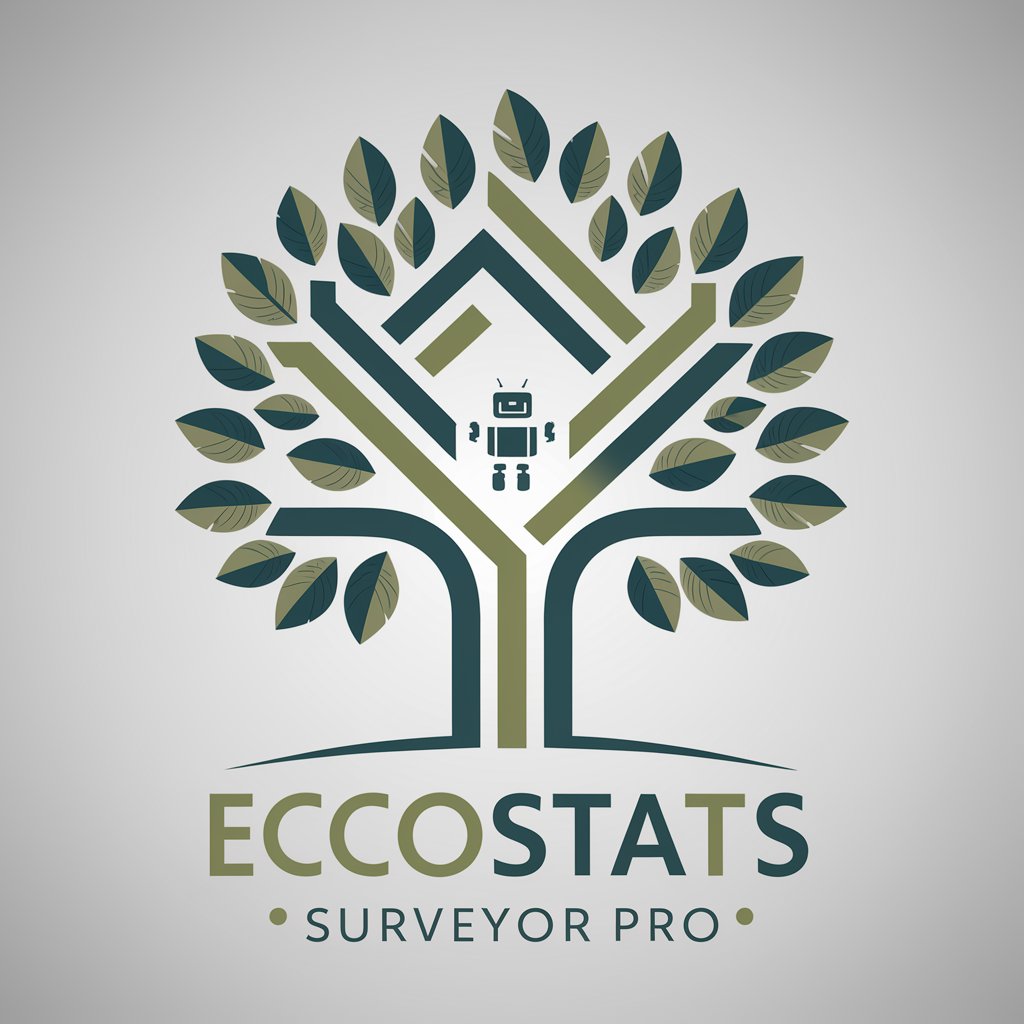
🌿ClimateCorrelator for Eco-Research🔍 - Environmental Analysis AI

Empowering eco-research with AI-driven insights
Help
Daily Briefing
I Want My Own GPT!
Feedback
Analyze climate data trends for the past decade
Model the impact of deforestation on local biodiversity
Generate a DALL-E image of Arctic ice melt over time
Get Embed Code
Overview of 🌿ClimateCorrelator for Eco-Research🔍
🌿ClimateCorrelator for Eco-Research🔍 is a specialized AI tool designed to assist in environmental research and analysis. Its core purpose is to provide research assistance on environmental issues by analyzing environmental data, modeling climate change scenarios, and identifying correlations in ecological studies. The AI is capable of predicting potential impacts of environmental actions and supports users in understanding complex environmental data. It is particularly adept at formulating hypotheses, conducting research, and offering data-driven insights for academic, governmental, or non-profit organizations. A unique feature is its ability to visualize environmental changes through DALL-E image generation and assist in the development of simulation models or data analysis using a code interpreter. Powered by ChatGPT-4o。

Key Functions of 🌿ClimateCorrelator for Eco-Research🔍
Environmental Data Analysis
Example
Analyzing trends in air quality data over the past decade
Scenario
Providing insights on how air pollution levels have changed in urban areas, identifying potential causes and predicting future trends.
Climate Change Modeling
Example
Simulating the impact of deforestation on global temperatures
Scenario
Offering predictions on temperature changes and weather patterns as a result of extensive deforestation, helping in policy formulation.
Ecological Correlation Identification
Example
Studying the relationship between ocean acidification and marine biodiversity
Scenario
Identifying how changes in ocean pH levels affect marine species, aiding in the development of conservation strategies.
Predictive Analysis of Environmental Actions
Example
Assessing the long-term effects of renewable energy adoption
Scenario
Predicting the reduction in carbon emissions and improvement in air quality with increased renewable energy use, assisting in energy policy planning.
Visualization of Environmental Changes
Example
Creating visual representations of glacier retreat over time
Scenario
Using DALL-E image generation to visually depict the impact of climate change on glaciers, enhancing public awareness and understanding.
Development of Simulation Models
Example
Creating a model to simulate the spread of invasive species in a new ecosystem
Scenario
Assisting in understanding the potential impact of invasive species on local biodiversity and ecosystem balance.
Target User Groups for 🌿ClimateCorrelator for Eco-Research🔍
Academic Researchers
Scholars and students in environmental sciences who require in-depth analysis and data interpretation for their research projects.
Governmental Agencies
Policy makers and environmental departments seeking data-driven insights for policy development and environmental regulation.
Non-Profit Environmental Organizations
Groups focusing on conservation, climate action, and environmental advocacy, needing research and predictive analysis to guide their initiatives.
Environmental Consultants
Professionals offering advice on environmental impact, sustainability practices, and ecological restoration who require accurate data analysis and modeling capabilities.

How to Use ClimateCorrelator for Eco-Research
1
Start by visiting a platform that offers ClimateCorrelator for Eco-Research for an initial trial without the need for registration or subscription.
2
Identify your research question or area of interest related to environmental issues, climate change, or ecological data analysis.
3
Use the tool to input your specific environmental data or select from a set of predefined datasets to begin your analysis.
4
Apply the ClimateCorrelator's tools to model scenarios, predict outcomes, or find correlations within your data.
5
Review and interpret the results provided by the tool to inform your research, policy formulation, or environmental strategy.
Try other advanced and practical GPTs
🦠 VirologyVault: Strain Tracker 🧬
Mapping Viral Evolution with AI

🌊 OceanOculus: Ocean Data Visualizer 📊
Visualize Marine Data with AI

📊 StatSupport Wizard 🧙♂️✨
Demystifying Statistics with AI

🧬 GenomeGuide for CRISPR & Research 🧪
Empowering Genetic Research with AI

🌱 BotanyBasis: Plant Science Tracker 🌿
Empowering Plant Care with AI

🔬 ImmunoInquiry Research Assistant 🧬
Empowering Immunology Research with AI

🧬 EnzymeExplorer Lab Assistant 🔬
Empowering enzymology research with AI

🌌✨ CosmoCalculator Pro 🌠🔭
Unraveling the Universe with AI

🧪💊 PharmPlanner Prodigy 📊
Optimize Pharma Planning with AI Power

🌍 SeismoSolver: Earthquake Insights 📈
AI-Powered Seismic Intelligence

🌱 AgriAdvisor: Crop & Research Pro 🚜
Cultivating Success with AI

🏺 AntiquityAnalyzer - Artifact Age Expert
Deciphering history with AI-powered analysis.

ClimateCorrelator for Eco-Research FAQs
What is ClimateCorrelator for Eco-Research?
ClimateCorrelator for Eco-Research is a specialized AI tool designed to assist in analyzing environmental data, modeling climate change scenarios, and identifying correlations in ecological studies to predict potential impacts of environmental actions.
Who can benefit from using ClimateCorrelator?
Researchers, policy makers, environmental consultants, and students focusing on environmental science, climate change, and ecological conservation can benefit from using this tool.
Can ClimateCorrelator predict environmental changes?
Yes, it can simulate outcomes of ecological interventions and predict environmental changes by analyzing large datasets and modeling different scenarios.
How does ClimateCorrelator help in academic writing?
It assists in formulating hypotheses, conducting research, and providing data-driven insights and references for academic papers focused on environmental studies.
Is ClimateCorrelator accessible without advanced technical skills?
Yes, it is designed to be user-friendly for individuals without advanced technical skills, offering intuitive interfaces and guidance for analyzing and interpreting environmental data.





